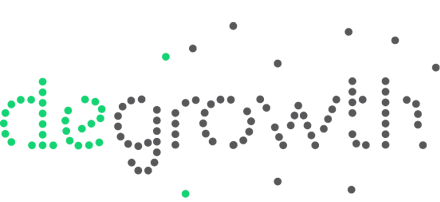Originally, we planned to write and submit a traditional research article for this inaugural issue of the journal Degrowth. Our idea was to respond to Brand et al.'s call and contribute to "a dialogue [...] toward understanding and defining conditions and thresholds" (2021, p. 281) for self-limitation and realising a degrowth society. However, when the process of preparing our manuscript was nearing completion, we came to the conclusion that submitting it to this journal would be inappropriate and that we needed to write this essay instead. In our view, it represents a much more appropriate contribution to this inaugural issue of Degrowth. A full explanation of the train of thought behind this decision and appreciation is given by way of the remainder of this essay and starts with setting out the rationale for our original manuscript, and the research process it involved.
Based on the reference point that local government has a significant impact on realising broader (national and/or international) policy intentions on the ground, our research process was designed to explore to what extent municipalities in the Netherlands have installed degrowth conditions and have already engaged in initiatives that align with creating a degrowth society. Building on Cosme et al.'s (2017) categorisation of degrowth policy proposals, the specific policy proposals put forward by Kallis (2015) and Hickel et al.'s (2021) suggestions for policy interventions, we interviewed policy makers (aldermen and mayors) representing ten Dutch municipalities and scrutinised additional documentation to identify policies, measures and activities that (have the potential to) contribute to creating a degrowth society. The interview and identification processes were guided by Hickel's definition of degrowth: "A planned reduction of excess energy and resource use to bring the economy back into balance with the living world in a safe, just and equitable way" (2020, p. 29). We then conducted a thematic analysis of data gathered, gratefully and conscientiously making use of Parrique's (2019) categorisation of degrowth measures into 19 themes, 60 goals, 43 objectives and 140 instruments. Finally, we started drafting a first version of our manuscript, including a results and discussion section.
The gist of these sections, and the manuscript as a whole, would have been that municipalities in the Netherlands already put a lot of effort in trying to reduce (excess) energy and resource use but without a clear strategic focus. In fact, and more importantly, our findings suggested that Dutch municipalities fail to address the second part of Hickel's definition: how to do so in a safe, just and equitable way. Only very few of the measures taken by these municipalities relate to ensuring social fairness and achieving a transition from a materialistic to a convivial and participatory society. No measures were identified that correspond with or even somewhat resemble the first three policy proposals put forward by Kallis (2015): citizen debt reduction, work-sharing and basis and maximum income. In our conclusions section, we would have probably linked our findings to Hankammer et al.'s (2021) findings that even commercial organisations certified as being very sustainable do not (yet) cover the principles of degrowth and could actually be argued to pursue green growth, as well as Krähmer's (2019) rather sobering assessment of the municipality of Copenhagen's approach to sustainable urban development - a so-called success story that, on closer inspection, is actually largely based on externalising ecological impacts. And our final conclusion would then have read something like: Unfortunately, despite their good intentions, our municipalities claim to be pursuing sustainable development, but their actions suggest they are actually pursuing a myth-green growth-by failing to address the socially just and democratic transformation or emancipation process (Parrique, 2019) that needs to accompany a planned reduction of excess energy and resource use.
As mentioned earlier, ultimately, though, we never finished this manuscript. Instead, we created an extensive but accessible Dutch version - which we shared with the interviewees and published online. We also issued a press release to news media, contacted a number of relevant environmental, governmental and business organisations for further discussions, and spread the core message of our study on social media. All of this also resulted in us getting the chance to hand over our report to members of the Dutch national parliament and agreeing to organise a round table with degrowth experts for them. Plans for a podcast and live presentations are in the making.
